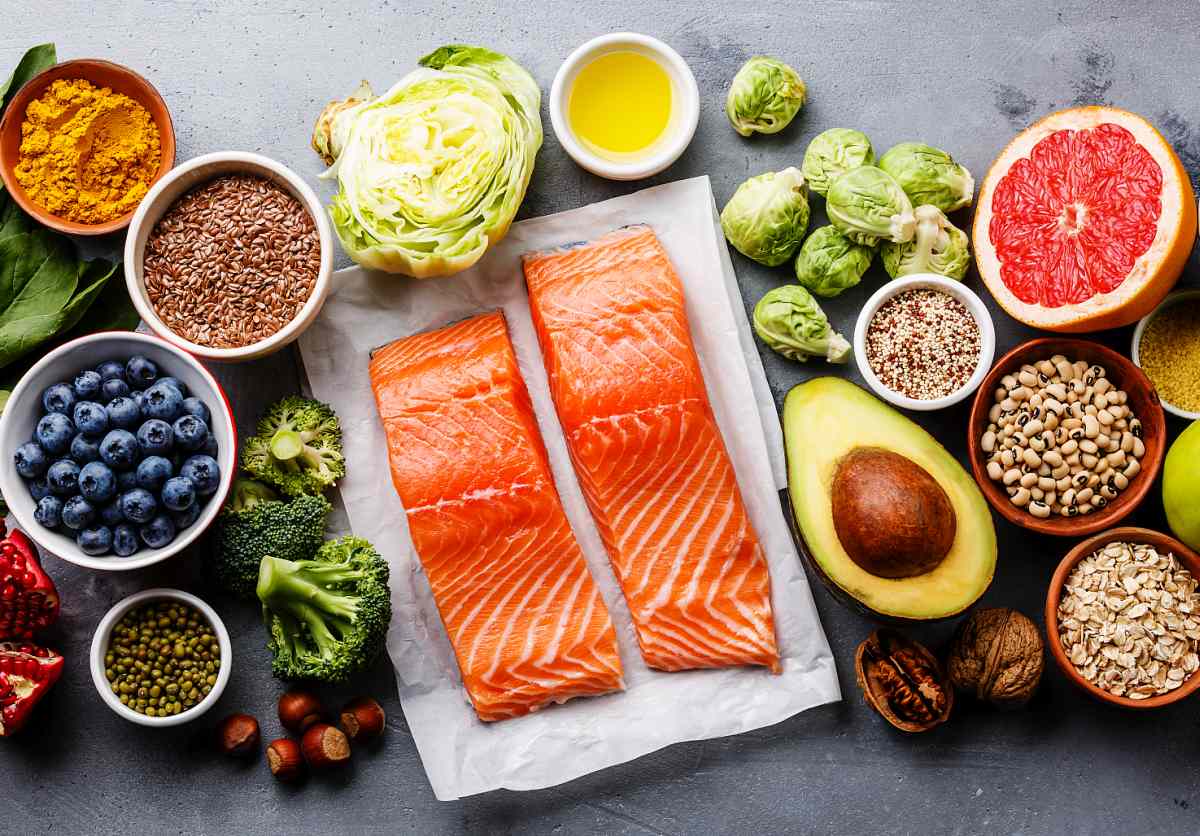You train your body and give it what it needs to perform perfectly. But what about your brain? What does our gray matter need to perform at its best? An American neurologist provides his top 5 tips. Let’s get started on boosting your brain cells!
Your brain works at top speed every day. It registers what is going on around you and what your senses are reporting back to you. It learns, remembers, and solves complex problems. It focuses, communicates, and controls. What a tough job! So it’s a good idea to give it the perfect working conditions to keep it healthy and happy. But what does your brain need to perform at its best? Dr. Philip Gorelick, an expert in neurology and long-time volunteer with the American Heart Association (AHA), explains.
Caring for your brain at any age
 You can and should work on improving your brainpower at any age. “More and more, researchers have noticed that early life has an impact on our brainpower,” reports Dr. Gorelick. “We know that a mother’s health and diet during pregnancy affect her baby’s brain health and IQ.” But even in young children and into old age, good nutrition, exercise, and a healthy lifestyle lay the foundation for a healthy brain and good mental capacities.
You can and should work on improving your brainpower at any age. “More and more, researchers have noticed that early life has an impact on our brainpower,” reports Dr. Gorelick. “We know that a mother’s health and diet during pregnancy affect her baby’s brain health and IQ.” But even in young children and into old age, good nutrition, exercise, and a healthy lifestyle lay the foundation for a healthy brain and good mental capacities.
5 ways to boost your brain power
“What’s good for the heart and overall health is generally good for the brain, and vice versa,” explains Dr. Gorelick. That means both your body and brain can reap many benefits from everyday healthy habits. Here are Dr. Gorelick’s top 5 tips for keeping mentally fit. It’s never too late – or too early – to start!
- Get social
Maintain good contact with family, friends, coworkers, and neighbors. Feeling connected to others can stave off depression, anxiety, and other mental health issues, especially as you age. “Social isolation can lead to mental decline,” warns Dr. Gorelick. Meet different people. The more diverse your relationships, the more you will be challenged to think creatively. Join forces and you can maximize your potential for solving problems, playing games or sport, or just enjoying each other’s company.
- Keep moving
 Exercise remains one of the best things you can do for your mind, body, and soul. “Exercise strengthens the heart and it’s great for the brain,” emphasizes Dr. Gorelick. The American Heart Association recommends getting at least 75 minutes of vigorous exercise or 150 minutes of moderate exercise per week. Physical activity promotes blood flow to the brain and encourages new brain cells to grow. Moving more will help manage your cholesterol, blood sugar, and weight – all important indicators of overall health.
Exercise remains one of the best things you can do for your mind, body, and soul. “Exercise strengthens the heart and it’s great for the brain,” emphasizes Dr. Gorelick. The American Heart Association recommends getting at least 75 minutes of vigorous exercise or 150 minutes of moderate exercise per week. Physical activity promotes blood flow to the brain and encourages new brain cells to grow. Moving more will help manage your cholesterol, blood sugar, and weight – all important indicators of overall health.
- Eat a brain- and heart-healthy diet
You are what you eat! The American Heart Association recommends a brain- and heart-healthy diet that includes plenty of vegetables, nuts, legumes, and wholegrain products. Plus lean animal or vegetable protein and low-fat dairy products. The Mediterranean diet is the best guide here since it includes many of these foods rich in omega-3 fatty acids, B vitamins, and antioxidants.
Some more brain- and heart-healthy foods include:
- Dark leafy greens like kale and spinach
- Fatty fish like salmon, herring, mackerel (2 servings/week)
- Antioxidant-rich berries e.g. blueberries, redcurrants
- Tea and coffee (in moderation)
- Walnuts (about one handful/day)
For the good of your health, try to limit added salt, saturated fat, sugar, and alcohol in your diet.
- Sleep on it
 If you want to boost your brainpower, you better sleep on it. A quality night’s sleep isn’t just restful – it’s also a time of great productivity. That’s because when you fall asleep your brain is still processing all you learned and experienced during the day. Seven to nine hours of sleep a night is ideal. Consistency is key: Ideally, you should go to bed and wake up at the same time each day – even on weekends, vacations, and holidays.
If you want to boost your brainpower, you better sleep on it. A quality night’s sleep isn’t just restful – it’s also a time of great productivity. That’s because when you fall asleep your brain is still processing all you learned and experienced during the day. Seven to nine hours of sleep a night is ideal. Consistency is key: Ideally, you should go to bed and wake up at the same time each day – even on weekends, vacations, and holidays.
- Never stop learning
From Memory to Trouble and Monopoly, we play endless games to help children learn. Adults need mental stimulation, too. “Learning new things is really good exercise for your brain, and it’s good fun,” shares Dr. Gorelick. You can tackle mind puzzles (think crosswords and Sudoku), pick up a new musical instrument, or learn a foreign language. The destination matters less than the journey. So follow whatever interests you. Especially if it involves social interaction.
Hopefully these tips have gone straight to your head, because as Dr. Gorelick says: “The brain is really a treasure. We need to protect it.” Good luck!
Note: Since everyone’s health history and nutritional needs are so different, please make sure that you talk with your doctor and a registered dietitian to get advice about the diet and exercise plan that‘s right for you.

